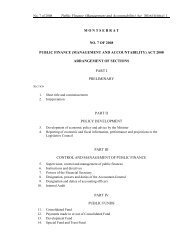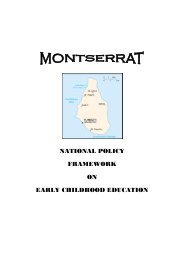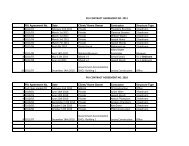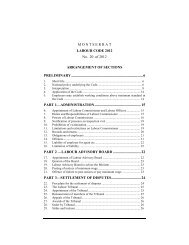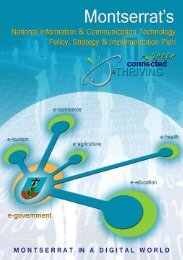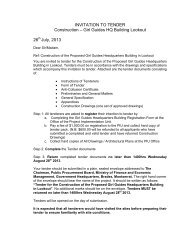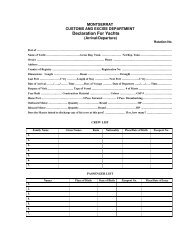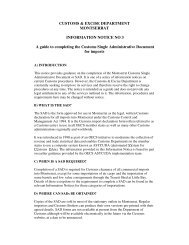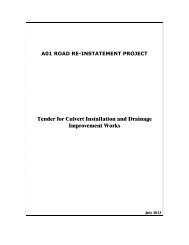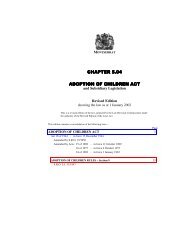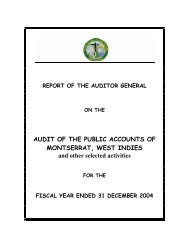Montserrat Survey of Living Conditions (MSLC) Executive Summary
Montserrat Survey of Living Conditions (MSLC) Executive Summary
Montserrat Survey of Living Conditions (MSLC) Executive Summary
Create successful ePaper yourself
Turn your PDF publications into a flip-book with our unique Google optimized e-Paper software.
<strong>Montserrat</strong> <strong>Survey</strong> <strong>of</strong> <strong>Living</strong> <strong>Conditions</strong><strong>Executive</strong> <strong>Summary</strong>Higher levels <strong>of</strong> poverty are also associated with:Households where no one is employed.Households headed by persons with only primary education.<strong>Montserrat</strong>ian-headed households.Overcrowded and renting households (virtually everyone has access to piped water, sanitation andelectricity.Lower levels <strong>of</strong> vehicle and computer ownership – but not telephones, fridges, TVs and washingmachines.The situation is however more complex than is implied by the above statistics which, in most cases, arenot statistically significant:In every category described there are more not poor people than poor people.Just because a group exhibits a lower than average poverty rate, does not mean that there are notimportant poverty related issues that need to be addressed.The data relate only to income poverty and do not take account <strong>of</strong> issues related to wellbeing.3.4 Difficulties faced by the PoorThe PPAs provide information on the difficulties encountered by different groups <strong>of</strong> the poor. The‘primacy’ <strong>of</strong> economic hardship came out strongly in the PPAs with more mentions relating to high prices,low wages and lack <strong>of</strong> employment opportunities - resulting from the sluggish economy and the spike inoil and food prices that occurred at the end <strong>of</strong> 2008/ early 2009 - than for all other issues combined. As aresult, many households are finding it hard to cope with weekly food costs, loan repayments, educationcosts and utility bills (electricity disconnections are increasing).For poor family households (55% <strong>of</strong> poor households have children), these difficulties can lead toadditional pressures on family relationships potentially giving rise to a range <strong>of</strong> adverse impacts onwellbeing:“I feel confused, frustrated and, powerless. When I get up in the morning and I don’t have sugar to put in mychildren tea, I have to ask the neighbour. I feel very stress. In <strong>Montserrat</strong> you hardly get someone to ‘stretch’for you. You have to fight the battle for yourself. I feel that my life is at risk, because I have a heart problem.I am sick and I cannot come up with money to go to the doctor. I feel at risk. Really tough, I have stress Ihave children to feed. I eat what the doctor told me eat, but it is very difficult. I have husband who is not“stretching” for me. He is not helping me.” (FGD Migrant Women, Salem)In turn, these pressures can give rise to a range <strong>of</strong> abusive, anti-social and risky behaviours: family breakup, domestic violence, child abuse, drug-taking, criminality and teenage pregnancy 11 , all <strong>of</strong> which increasethe risk <strong>of</strong> continuing and inter-generational poverty:11 Note that these can also arise independently <strong>of</strong> economic issues; see 3.7 below.<strong>Montserrat</strong> Country Poverty Assessment, Final ReportHalcrow Group Limited, July 2012.ES11




